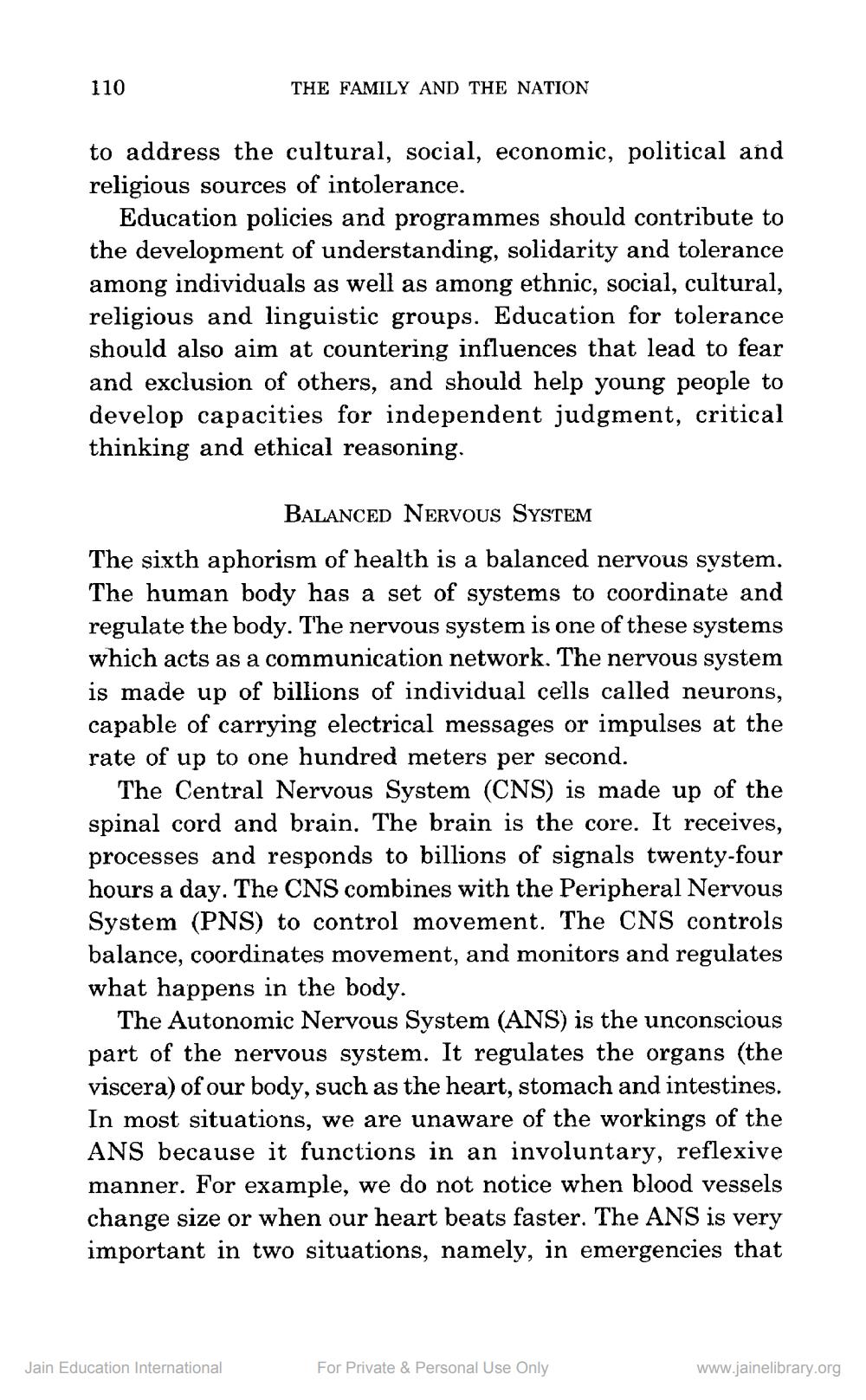________________
110
THE FAMILY AND THE NATION
to address the cultural, social, economic, political and religious sources of intolerance.
Education policies and programmes should contribute to the development of understanding, solidarity and tolerance among individuals as well as among ethnic, social, cultural, religious and linguistic groups. Education for tolerance should also aim at countering influences that lead to fear and exclusion of others, and should help young people to develop capacities for independent judgment, critical thinking and ethical reasoning.
BALANCED NERVOUS SYSTEM The sixth aphorism of health is a balanced nervous system. The human body has a set of systems to coordinate and regulate the body. The nervous system is one of these systems which acts as a communication network. The nervous system is made up of billions of individual cells called neurons, capable of carrying electrical messages or impulses at the rate of up to one hundred meters per second.
The Central Nervous System (CNS) is made up of the spinal cord and brain. The brain is the core. It receives, processes and responds to billions of signals twenty-four hours a day. The CNS combines with the Peripheral Nervous System (PNS) to control movement. The CNS controls balance, coordinates movement, and monitors and regulates what happens in the body.
The Autonomic Nervous System (ANS) is the unconscious part of the nervous system. It regulates the organs (the viscera) of our body, such as the heart, stomach and intestines. In most situations, we are unaware of the workings of the ANS because it functions in an involuntary, reflexive manner. For example, we do not notice when blood vessels change size or when our heart beats faster. The ANS is very important in two situations, namely, in emergencies that
Jain Education International
For Private & Personal Use Only
www.jainelibrary.org




